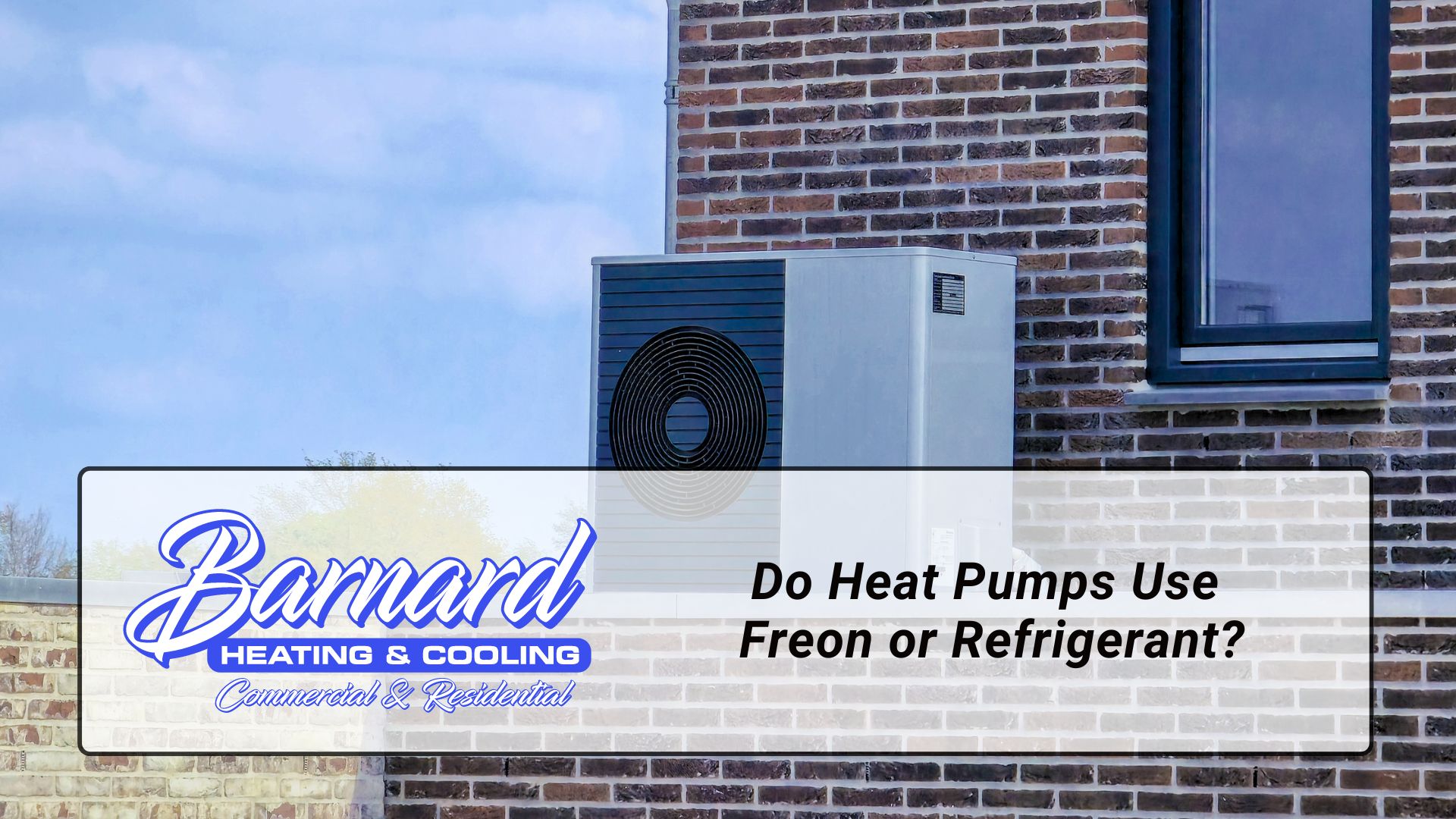It’s common to have questions about the inner workings of your heat pump system. One such question is whether heat pumps use Freon or refrigerant. In this blog, we’ll clarify the difference between the two and explain what heat pumps use to keep your space comfortable year-round.
What Is Freon?
Freon is a brand name for refrigerants commonly used in air conditioning systems and heat pumps. However, as of January 1, 2020, due to its harmful effects on the ozone layer, the Environmental Protection Agency (EPA) ruled that the production and import of Freon (also known as R-22 or HCFC-22) must be phased out in the U.S. If your heat pump was installed before 2010, it likely uses Freon.
Note: The EPA phase-out simply means that new equipment can’t use Freon. If your existing system does, you may continue to use it.
What Is Refrigerant?
While Freon is a type of refrigerant, the term “refrigerant” refers to any substance used in a heat pump or air conditioning system to transfer heat from one place to another. Refrigerants absorb heat from the inside of a building and release it outside during the cooling process. During the heating process, it absorbs heat from the outside air and releases it inside.
After the phase-out of Freon, newer, more environmentally friendly refrigerants like R-32, R-600, and R-513A have been used in heat pumps and air conditioning systems. These refrigerants are more energy efficient than Freon and do not deplete the ozone layer.
Do Heat Pumps Use Freon or Refrigerant?
The answer is both, depending on when your heat pump was installed. Older heat pumps (pre-2010) likely use Freon, while newer systems use more environmentally friendly refrigerants.
The Importance of Proper Refrigerant Levels
Maintaining the correct refrigerant levels in your heat pump is crucial for its proper functioning and efficiency. Low refrigerant levels can cause your heat pump to work harder, leading to increased energy consumption and reduced performance. It can also cause damage to the compressor, which is one of the most expensive components of your heat pump.
Signs of a refrigerant leak or low levels:
- Reduced cooling or heating performance
- Hissing or bubbling sounds coming from the heat pump
- Frozen evaporator coils
- Higher than normal energy bills
If you notice any of these signs, it’s essential to contact a professional HVAC technician to diagnose and repair the issue. Attempting to add refrigerant without addressing the underlying cause of the leak can lead to further damage and costly repairs.
The Benefits of Regular Maintenance
Regular maintenance is key to preventing refrigerant leaks and ensuring your heat pump operates at peak efficiency. During a maintenance visit, a skilled HVAC technician will:
- Check refrigerant levels and inspect for leaks
- Clean or replace air filters
- Inspect and clean the evaporator and condenser coils
- Lubricate moving parts to reduce friction and wear
- Test the thermostat and other controls for proper operation
By scheduling annual maintenance for your heat pump, you can extend its lifespan, improve its efficiency, and catch potential issues before they lead to costly repair services or system failures.
Trust the HVAC Experts
At Barnard Heating and Cooling, we understand that the terminology surrounding heat pumps can be confusing. If you have any questions or concerns about your heat pump or need expert advice, contact us today. Our team of HVAC professionals is here to help!
